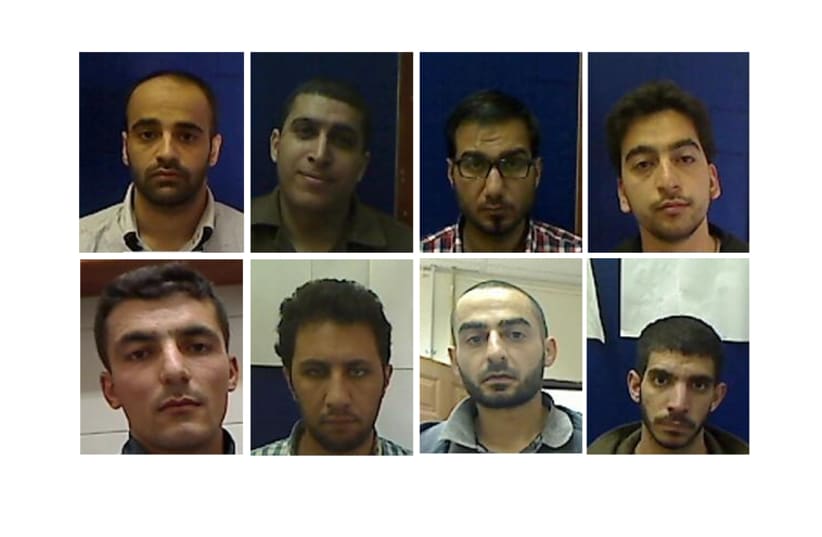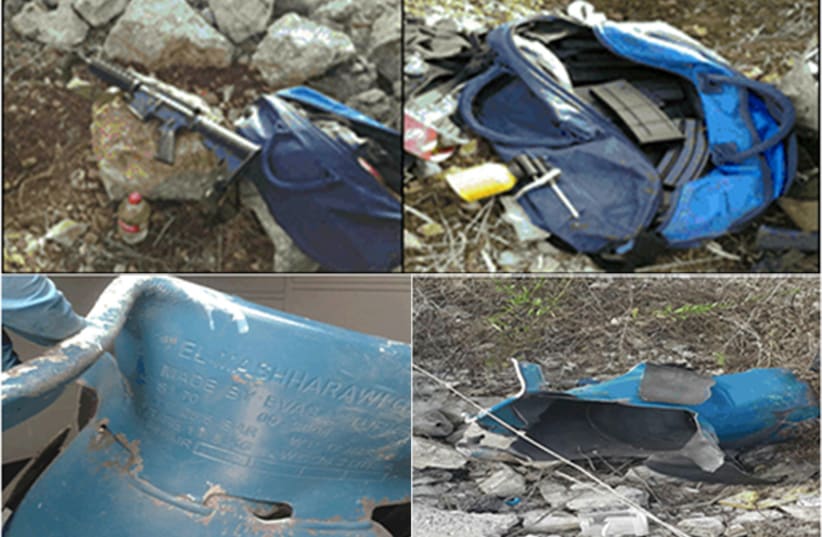


In recent weeks, some 30 Hamas members have been arrested in raids led by the IDF’s Duvdevan undercover unit.Two M-16 rifles, ammunition and bomb-making equipment were seized.The network planned to target the Teddy soccer stadium and the light rail system in the capital, to carry out car bombings and kidnappings of Israelis in Judea and Samaria as well as overseas, the Shin Bet said.The nerve center of the network was situated in Hamas’s headquarters in Turkey, the Shin Bet added.Additional intended targets included infiltrations of Israeli communities, shooting and bombing attacks against Israeli traffic and military targets in the West Bank, and setting up terrorist cells in Jordan to carry out cross-border attacks into Israel.The plot, uncovered in September, involved the assembly of multiple terrorist cells in the West Bank, as well as the training of Hamas members overseas.Members of the network planted two bombs in Samaria on August 31. Neither of the attacks, which involved time-detonated explosives, resulted in injuries.The second explosive was timed to kill emergency responders, according to the Shin Bet’s investigation.Following that attack, the agency arrested dozens of suspects, and learned during subsequent interrogations that some had joined Hamas as far back as 2012, in Jordan.“They received military training, and were given missions. At the start of 2014, they moved in and began taking action. Their missions included meetings with operatives, preparing [terrorist] infrastructure, and gathering intelligence on targets,” the Shin Bet said.In Jordan, the network sought to recruit students who were friends of Hamas operatives.The network identified students who supported the Muslim Brotherhood and Hamas, and had highly developed skills in various areas.Eventually, recruiters turned to selected prospective operatives with formal requests to join Hamas. Those who accepted came under the command of Hamas’s Turkey-based headquarters, which oversaw their military training.They were trained under the supervision of Hamas’s overseas and Gaza-based branches, in Jordan, Turkey, Syria and the Gaza Strip.Recruits reached Gaza through smuggling tunnels from Egypt, and were instructed in weapons, terrain analysis, navigation and how to keep information secret.In Turkey, they learned about various “spheres of operations, aimed at carrying out terrorist attacks within Israel, the West Bank and overseas,” the Shin Bet said.In Jordan, training included weapons handling, bomb-making and briefings ahead of attacks.At the end of their training, recruits joined various terrorist plots, in line with guidance from senior Hamas members in Turkey.Instructions arrived from Hamas commanders in Turkey to field operatives, via “forward operatives in Turkey and Jordan, who were responsible for executing the plans.”Subsequently, Hamas operatives arrived in the West Bank to carry out the attacks, as well as coordinate the smuggling of weapons and money.The operatives received instructions to recruit local terrorist cells and train more operatives, as well as to locate sites for bomb-making labs and apartments that could serve as operations centers.In August, the Shin Bet thwarted an earlier large-scale plot, headed by senior Ramallah- based Hamas commander Riad Nasser, who is under arrest.That plot was also directed by Hamas’s Turkey-based headquarters, specifically by Saleh Aruri, who commands the movement’s “West Bank sector.”Hamas funneled more than NIS 1m. into that network and purchased weapons, before the Shin Bet thwarted the initiative.Both plots “point to the high motivation of Hamas, and of Saleh Aruri, who seek to reconstruct Hamas’s military infrastructure in the West Bank, and to carry out attacks against Israeli targets,” the agency said.Such attacks would have enabled Hamas to “move the spotlight” away from the Gaza Strip, and drag Israel into a harsh response in Judea and Samaria, resulting in the collapse of the Palestinian Authority, which is one of Hamas’s central goals, it said.The Shin Bet named several key suspects under arrest, including Manaf al-Rahman Ajabara, 28, a Jordanian resident, who was recruited to Hamas while studying engineering.During questioning, he told the Shin Bet of how he underwent military training and received mission assignments from Hamas leaders to set up an infrastructure in the West Bank, recruit additional members, and carry out attacks on Israeli targets. He confessed to playing a role in setting up the bomb attacks in Samaria on August 31.Another suspect is Rajai Mustafa Amuri, 30, from Tulkarm. Amuri, who was in prison five previous times for security offenses, confessed to working with a Jordanian Hamas operative to carry out the bomb attacks in the northern West Bank, according to the Shin Bet.The agency named six additional suspects, some from the West Bank and others from Jordan, who allegedly played roles such as bomb-making, funneling funds, and setting up terrorist cells.
